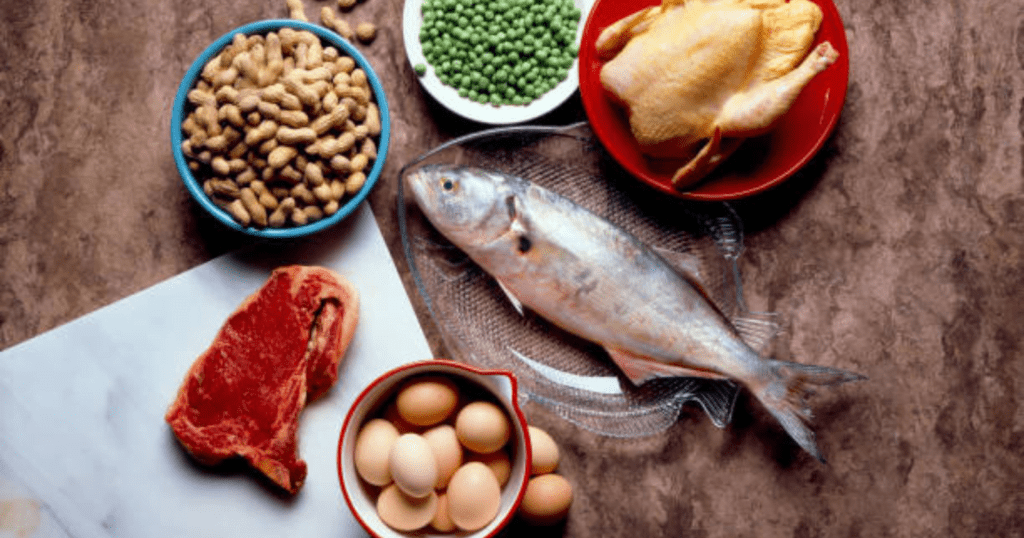why is it important to eat enough protein?: In the realm of nutrition, one macronutrient stands out for its indispensable role in the human diet: protein. Often hailed as the building block of life, protein plays a crucial role in various bodily functions, making it essential to consume an adequate amount as part of a balanced diet. But why exactly is it so important to ensure you’re getting enough protein? Let’s delve into the myriad reasons why this macronutrient is a cornerstone of good health.

Why is it important to eat enough protein?
- Muscle Growth and Repair: Perhaps the most well-known function of protein is its role in muscle growth and repair. During physical activity, especially strength training or exercise that involves resistance, muscle fibers undergo microscopic damage. Protein provides the necessary amino acids to repair and rebuild these fibers, leading to muscle growth and strength development.
- Supports Enzyme Function: Enzymes are biological catalysts that facilitate various chemical reactions in the body, ranging from digestion to metabolism and beyond. Many enzymes are proteins, meaning they are constructed from amino acids obtained through dietary protein sources. Without an adequate supply of protein, the body may struggle to produce these vital enzymes, potentially impairing numerous physiological processes.
- Maintains Healthy Hair, Skin, and Nails: Protein is a key component of hair, skin, and nails. Collagen, for example, is a structural protein abundant in connective tissues that gives skin its elasticity and strength. Insufficient protein intake can result in brittle nails, dry skin, and lackluster hair, highlighting the importance of meeting your body’s protein needs for maintaining healthy external features.
- Balances Hormones: Hormones act as messengers in the body, regulating various processes such as metabolism, growth, and mood. Protein plays a crucial role in hormone synthesis, ensuring that hormone levels remain balanced and function optimally. For instance, inadequate protein intake may disrupt insulin production and sensitivity, leading to blood sugar imbalances and potentially contributing to the development of metabolic disorders like diabetes.
- Aids in Weight Management: Protein is highly satiating, meaning it helps you feel fuller for longer periods after a meal. By promoting feelings of satiety, protein can aid in weight management efforts by reducing overall calorie intake and curbing excessive snacking. Additionally, protein requires more energy to digest compared to fats and carbohydrates, resulting in a slight increase in metabolism, which can further support weight loss or maintenance goals.
- Preserve Lean Body Mass during Weight Loss: When you’re in a calorie deficit to lose weight, there’s a risk of losing not just fat but also lean muscle mass. Consuming an adequate amount of protein during weight loss helps preserve muscle tissue, ensuring that the weight loss predominantly consists of fat rather than valuable muscle. This is crucial for maintaining metabolic rate and overall physical function.
- Supports Immune Function: Many components of the immune system, including antibodies and immune cells, are made up of proteins. A sufficient intake of protein is essential for the production and function of these immune factors, helping the body effectively defend against pathogens and maintain optimal immune function.
You May also like: What happened in the first phase of the big bang theory?
why is protein important for weight loss?
Here are the reasons why is protein important for weight Loss:
- Satiety: Protein is highly satiating, helping you feel full and satisfied after meals, reducing the likelihood of overeating or snacking on calorie-dense foods.
- Increased Metabolic Rate: Protein has a higher thermic effect on food (TEF) compared to fats and carbohydrates, meaning the body expends more energy to digest and metabolize it, potentially boosting calorie expenditure.
- Preservation of Lean Muscle Mass: Adequate protein intake helps preserve lean muscle tissue during weight loss, supporting metabolic rate and ensuring a more favorable body composition.
- Blood Sugar Regulation: Protein-rich foods can help stabilize blood sugar levels, preventing fluctuations that may lead to cravings and energy crashes, thus supporting weight loss efforts.
- Enhanced Adherence to Calorie-Controlled Diets: Incorporating protein into meals and snacks promotes adherence to calorie-controlled diets by promoting feelings of fullness and reducing the desire to overeat.
